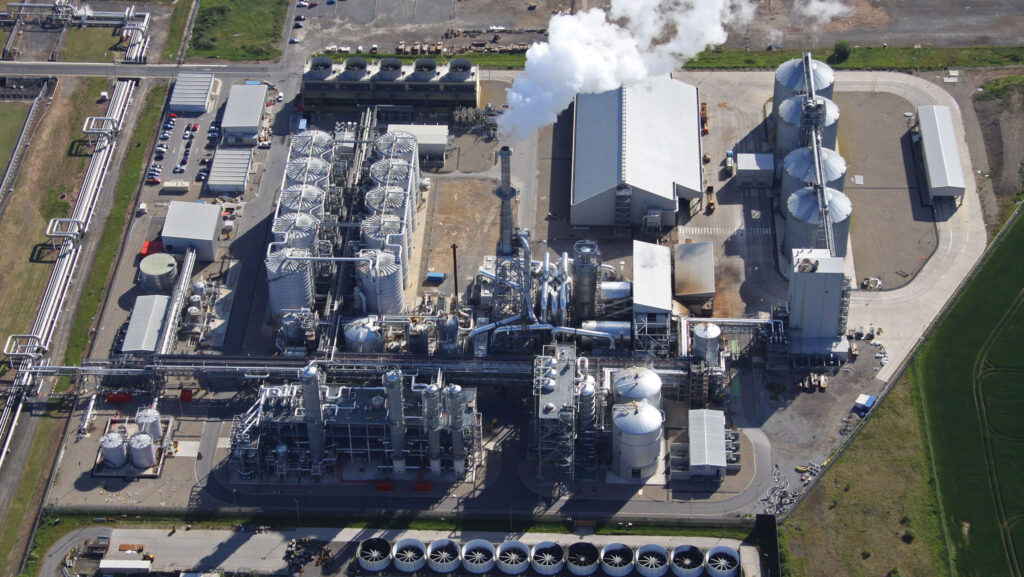Fears Ensus may follow Vivergo into shutdown
 © APS UK/Alamy Stock Photo
© APS UK/Alamy Stock Photo One of Britain’s biggest producers of bioethanol and carbon dioxide, Ensus, is in urgent talks with the government in a last-ditch effort to avoid collapse, just as rival Vivergo prepares to shut its doors next week.
Despite reassurances that its Teesside plant is still running, Ensus says discussions with officials are ongoing as the fallout from a recent UK-US trade deal threatens to derail domestic production.
See also: Farmers to be hit by imminent closure of Vivergo ethanol plant
The ripple effects are already raising food security alarms. Nick Allen, chief executive of the British Meat Processors Association, warns the UK is on the brink of a carbon dioxide supply crisis that could hit food production hard.
“By Christmas, things could get very difficult. We’re going to be importing more from the Continent, prices will spike, and we’ll be left over a barrel,” he said.
He added: “It leaves you vulnerable. We’ve had these crises before and there’s no co-ordination across the Continent. The carbon dioxide supply is hand to mouth.”
Bioethanol producers
Ensus and Vivergo are the UK’s only two major bioethanol plants, producing ethanol from wheat, mostly sourced from British farms.
At Ensus’s Teesside facility, the carbon dioxide generated during production is essential to the food and drink industry, used for extending shelf life and in the slaughtering process of pigs and poultry..
The process also produces a high-protein animal feed, sold back to farmers.
According to the NFU, the UK’s reliance on imported carbon dioxide has become a serious vulnerability.
A spokesman said: “Since ceasing of domestic ammonia production, the UK has become increasingly dependent on supplies of food grade carbon dioxide from imports and ethanol production.
“Carbon dioxide supply security has been a key source of anxiety for food production businesses since the energy crisis triggered by the war in Ukraine.”
While some companies have invested in backup storage, the NFU points to deeper flaws in the market’s structure.
“Some businesses have invested in additional storage as a source of resilience, but fundamentally there is a lack of transparency in the carbon dioxide market, particularly in distribution and wholesale pricing as well as supply and demand market signals.”
“This makes planning difficult for the food industry and increases the risk of supply disruption.”
Ensus, which is responsible for about 30% of the UK’s carbon dioxide supply, first raised alarms in June, warning of “imminent closure” without financial support from the government following a recent trade agreement between the UK and the US.
US ethanol imports
The deal, signed in May by prime minister Sir Keir Starmer and US president Donald Trump, permits up to 1.4bn litres of tariff-free American ethanol into the UK, equivalent to the UK’s total domestic production.
Despite concerns of impending closure, it is understood the Ensus plant, which employs 120 people and has up to 3,000 people in its supply chain, is due for a “scheduled maintenance overhaul” in September, an extensive, costly process required by regulation.
This involves taking the plant offline, stripping down equipment, carrying out inspections, replacing parts, and restarting operations, and is expected to take several weeks.
Meanwhile, Vivergo, owned by Associated British Foods and the UK’s only other bioethanol producer, confirmed on Friday 15 August that it will be closing its loss-making site in East Yorkshire.
The announcement followed a final ultimatum to the government, in which Vivergo warned it would be “forced to start the irreversible process of closing” unless ministers agreed to cover its losses and provide support to return the business to profitability.
Impact on poultry sector
The confirmed closure of one of the UK’s two main bioethanol plants, and the potential shutdown of the other, has raised serious concerns in the poultry industry over future carbon dioxide supply.
Carbon dioxide plays a vital role in poultry processing, and past shortages have already shown the “serious impact” they can have on production and “throughput,” according to a British Poultry Council (BPC) spokesman.
While the poultry sector is currently prioritised for carbon dioxide access, producers have worked to “strengthen resilience” and reduce their exposure to supply disruptions.
Still, the BPC stresses that “diversifying both demand and supply,” backed by “clear contingency planning,” is essential to protect “business continuity and food security”.
In the poultry sector, carbon dioxide is used in three key ways: for stunning birds before slaughter, in packaging to extend shelf life, and in some refrigeration and cooling systems.
If there was a shortage, birds could not be processed, leading to potential on-farm welfare issues, warns the council.
It notes that while carbon dioxide could be removed from packaging to free up supply, the closure of both plants could run the risk of slowing supply chains and force poultry companies to streamline operations to limit disruption.
